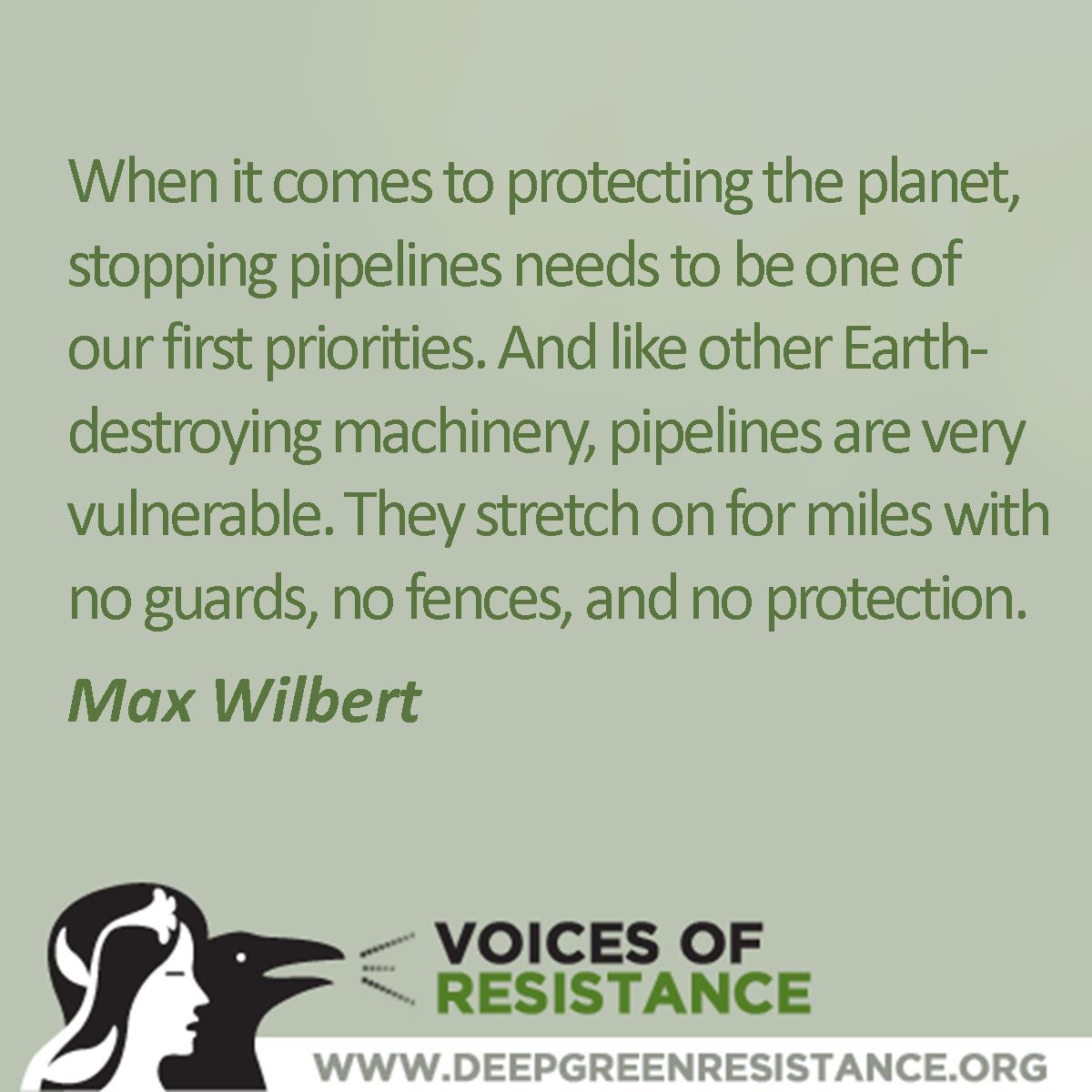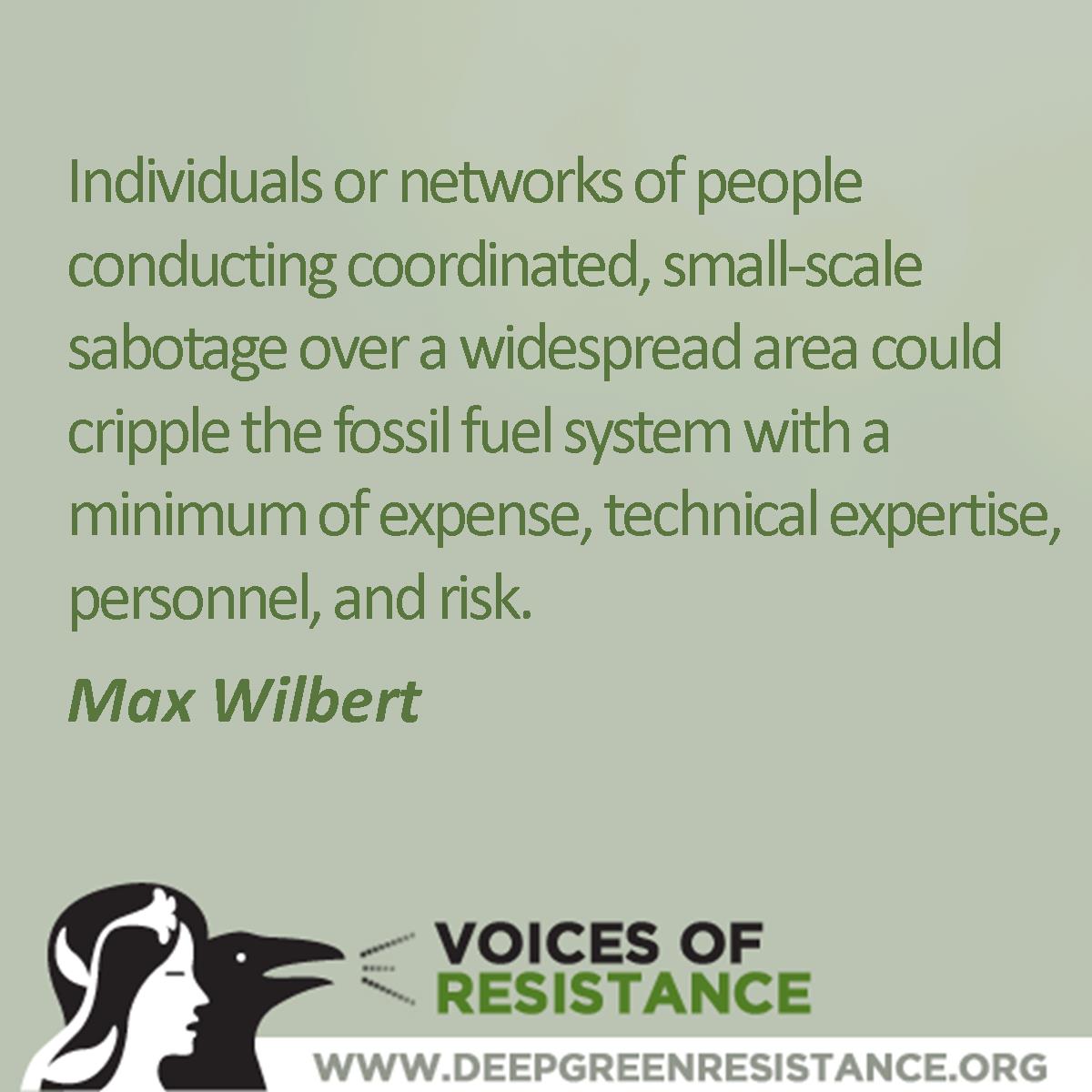Trump’s election has sabotaged any prospect of reigning in the global warming crisis
by Max Wilbert / Deep Green Resistance
On Tuesday night, the American people decided to elect Donald J. Trump, a billionaire business mogul and reality TV star who has been accused of raping or otherwise sexually assaulting twenty-three women, who has called for banning immigration to the United States, and who has built a campaign on virulent racism.
He received more than 60 million votes.
There is a lot to process. Those conversations, about the growing tide of white supremacy, about Trump’s pending sexual assault cases, about the fact that Hillary Clinton won the popular vote, about the left’s failure to engage with the white community on issues of race, and about the gerrymandering and voter disenfranchisement that characterizes the American system, are already taking place.
I want to focus here on one specific issue: global warming. As I’m writing this, I’m sitting in the sun outside my home. It’s November, and temperatures are more than 20 degrees above the typical average here. This year, 2016, is predicted to be the hottest year on record, beating out last year, which beat out the previous year, which beat out the previous year, each of the last five setting a new mark.
Records are being smashed aside like bowling pins. We are in the midst of a global catastrophe, and it is even worse than previously thought. On the day after the election, news broke that the climate is more sensitive to global warming than most calculations had suspected.
The study in question predicted nearly double the warming that the Intergovernmental Panel on Climate Change (IPCC) had previously expected. The new data predicts between 9 and 14 °F warming by 2100, enough to potentially lead to the extinction of the human species and flip the Earth into a completely new regime more similar to Venus than Earth. Michael Mann, one of the most well-known climate scientists in the world, says these findings and the changing political situation may mean “game over for the climate.”
Into this mess strides Donald Trump, who has said that if elected, he would “immediately approve” the Keystone XL pipeline, roll back environmental regulations, further subsidize the fossil fuel industry, and back out of the Paris climate agreement. Coal and oil stocks, as well as shares of equipment companies and railroads, jumped in price after news of his victory hit.
 Right now, thousands of native people and allies are gathering on the cold plains of North Dakota in an attempt to stop the Dakota Access Pipeline. Under President Obama, such popular movements had a chance—a small chance, but a chance—of success. Under Trump, there won’t be so much leniency, and the road to victory will be much harder.
Right now, thousands of native people and allies are gathering on the cold plains of North Dakota in an attempt to stop the Dakota Access Pipeline. Under President Obama, such popular movements had a chance—a small chance, but a chance—of success. Under Trump, there won’t be so much leniency, and the road to victory will be much harder.
History is clear; social movements have generally flourished under slightly more progressive administrations, and waned under right wing leadership. What does this mean for our strategy?
I would like to have a peaceful transition to a sane and sustainable world, but it seems increasingly impossible. The American people have shown themselves to be a reactionary force, clinging to their privilege as if it can shield them against the arrows that originate in American foreign policy. Immigrants come here because their lands have been destroyed for American capitalism, and groups like ISIS have emerged from a slurry of war, oil, racism, and fundamentalism.
Perhaps, then, we need a different type of change. When it comes to protecting the planet, stopping pipelines needs to be one of our first priorities. And like other Earth-destroying machinery, pipelines are very vulnerable. They stretch on for miles with no guards, no fences, and no protection.
Recently, a number of activists, including some who I know, were able to approach and shut down all five pipelines that carry tar sands oil into the United States in a coordinated act of non-violent civil disobedience. Their action was brave, but its long-term efficacy depends on whether courts will agree with them that their action was necessary and create a precedent to normalize actions of this type. With another Antonin Scalia on the way to the Supreme Court, a positive outcome is in doubt.
 Coordinated action of another type could be more effective in protecting the planet. In plain language, I speak of sabotage. Individuals or networks of people conducting coordinated, small-scale sabotage over a widespread area could cripple the fossil fuel system with a minimum of expense, technical expertise, personnel, and risk. It is simple to disappear into the night, and with proper security culture the possibility of capture is remote. We’ve seen how vulnerable this network is; anyone could do this.
Coordinated action of another type could be more effective in protecting the planet. In plain language, I speak of sabotage. Individuals or networks of people conducting coordinated, small-scale sabotage over a widespread area could cripple the fossil fuel system with a minimum of expense, technical expertise, personnel, and risk. It is simple to disappear into the night, and with proper security culture the possibility of capture is remote. We’ve seen how vulnerable this network is; anyone could do this.
It isn’t idle speculation that such attacks would have a substantial impact. Its actually been done before, most notably in Nigeria, where indigenous people in the Niger River Delta have risen against polluting oil companies many times over the past several decades. Most recently, attacks on oil pipelines earlier this year shut down some 40 percent of Nigeria’s oil processing. Months later, the oil industry still hasn’t recovered.
To many people, this plan will sound insane. Modern life is dependent upon oil in so many ways. But when oil is killing the planet and those in power will not respond to rational argumentation or peaceful protest, and when sixty million people are willing to vote a climate-denying sexual abuser into office, what options are we left with? It is time for serious escalation.
Max Wilbert is a writer, activist, and organizer with the group Deep Green Resistance. He lives on occupied Kalapuya Territory in Oregon.
To repost this or other DGR original writings, please contact newsservice@deepgreenresistance.org

Max, I mentioned this in a Facebook thread you started; I work in technology and was alerted recently to a new peer-to-peer construct called Ethereum. It runs on the same system as Bitcoin which is called The Blockchain. If the aims of this are successful it will be possible to create a secured decentralized network. One term which is being used for it is “The Internet Of Value”. There is more information here for those interested. https://www.ethereum.org/
Thanks Mike – I think that decentralized mesh networks do have some value for resistance movements. Appreciate the link.
I’m feeling the need to respond, which is significant considering the following: everyday, when I turn on my computer, I have all these e-mails from various environmental groups, animal rights groups, socialist groups, etc. They all want me to contribute money and sign a petition. This is not something I’m opposed to per se, but it leaves me feeling empty. I’ve written to various groups with what I consider to be creative ideas for protest and revolt, but to date, no one has responded. I’ve also written directly to organizations, attempting to describe this problem that I see happening in real time–which is that the strategy of procuring money and signatures for petitions might be having the opposite effect; it might just be contributing to a sense of information overload. And this coupled with the fact that people are enslaved at their “jobs” and can’t get away in order to do the necessary work to bring down empire…well it’s very daunting, not to mention depressing. This is why after reading this article, I felt a little better. I wish I could just quit my job and become a full time activist.
Dear Liz, thank you for writing. I sympathize. I get those emails too, and t can be hard to stay on top of them. Too much information can be paralyzing. We need action. Thank you.
Liz,
Thanks for your comment. I sympathize greatly. I submitted an idea to DGR and, thankfully, did receive a reply. My idea was to occupy Capitol Hill in Washington and demand emissions-reduction legislation from Congress. My idea was rejected as mere “lobbying.” I think shutting down Capitol Hill qualifies as organized force, but whatever.
I’m thankful for what people are planning at poorpeoplescampaign.org. I hope DGR coalesces with them.
Best,
Tyler
Thanks for the link Tyler, we’ll check that out! As far as your idea of occupying, we all think that sort of thing is great! It’s just not the exact sort of work we’re focused on, nor are we organized to carry out that type of mass action. A more mainstream group would be a better vehicle for that type of thing.
The world needs more activists for the environment, for animals and social justice. Anyone reading here who is not vegan, please watch ‘Cowspiracy’ on Netflix. It is one action you can take, 3 X per day and make a difference for the planet. Also the UN FAO Report ‘Livestock’s Long Shadow’ is for you if you like to read.
Karin, we can avoid supporting factory farming while still eating meat. I’m not willing to sacrifice my personal health when there are other sustainable options such as hunting and/or buying meat from local farmers who treat animals well. Our bodies need animal fats and proteins in order to function correctly. Without proper nutrition we will fail as activists due to poor health and lack of energy. I agree with you that industrial agriculture needs to be stopped, but veganism isn’t the solution in my opinion.